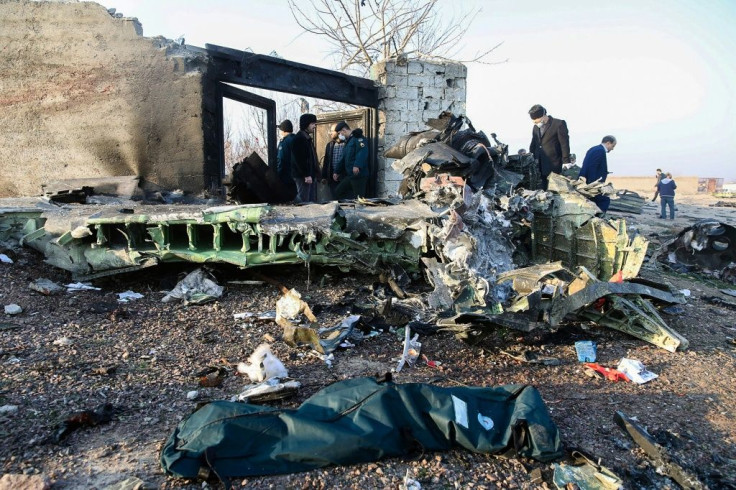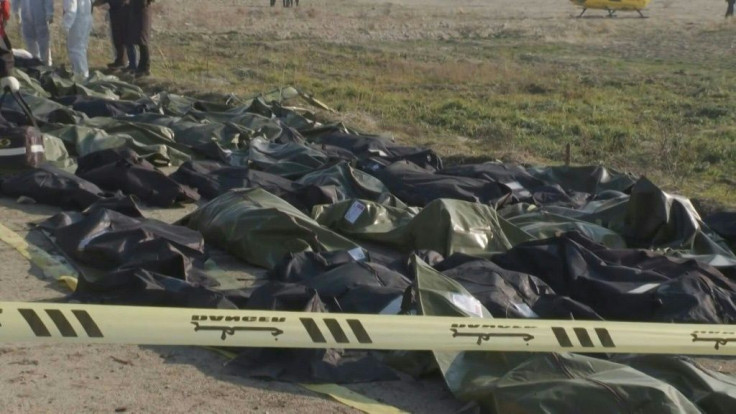EU Warns Iran Nuclear Deal May Collapse

The EU's diplomatic chief warned Friday that it may not be possible to save the Iran nuclear deal, as the bloc's foreign ministers held emergency talks on the Middle East.
Europe has led efforts to save the 2015 accord, gravely undermined by Trump's unilateral withdrawal in 2018 and Iran's subsequent winding down of its compliance, but to little effect.
After an afternoon of talks with ministers, Josep Borrell, the EU's high representative for foreign affairs, reiterated Europe's continuing support for the deal but warned it may be doomed.
"We want to save this deal if it's possible," he said, warning that negotiating a new pact would be a "very complex, highly technical process" that would take a long time.
Friday's meeting did not discuss triggering the deal's dispute resolution mechanism, which could ultimately lead to the UN Security Council reimposing sanctions on Iran.
"Maybe we cannot avoid that the JCPOA finally is being cancelled because the dispute mechanism can be triggered and I cannot exclude that this happens," Borrell said, using an abbreviation for the deal's formal name.
The three European parties to the pact -- Britain, France and Germany -- have all stressed their commitment to saving it, in defiance of a call by Trump this week to join him in walking away.
France and Germany have warned for some time that unless Iran returns to full compliance with the terms of the deal, they may trigger the dispute mechanism.
But the Europeans are expected to wait for UN inspectors to report on what Iran is doing on the ground following its latest announcement.
Earlier Friday, French Foreign Minister Jean-Yves Le Drian warned that without action, Iran could soon be in a position to develop the bomb.
"If they continue to unravel the Vienna accord then yes in quite a short period, between one and two years, they could have a nuclear weapon, which is unimaginable," he told France's RTL radio.
Several other ministers at the talks restated the EU's continuing determination to preserve the deal, which they say is vital for non-proliferation and regional security.

But Lithuania's Linas Linkevicius said that without some substantial change, "it will be difficult to believe that this agreement could be alive".
Friday's highly unusual emergency meeting was called in response to soaring Middle East tensions following the killing of Iranian general Qasem Soleimani in an American drone strike.
Fears of all-out war have subsided since US President Donald Trump made a statement on Wednesday saying Tehran appeared to be "standing down" after firing missiles -- without causing casualties -- at US troops based in Iraq.
But the fatal crash of a Ukrainian airliner near Tehran in the midst of the crisis was on ministers' minds, with several urging Tehran to carry out a transparent inquiry.

Reports from several Western capitals indicated that the crash of the Boeing 737 -- which killed 176 people -- appeared to have been caused by an Iranian air defence missile.
"This is more than tragic... the important thing now is that everything is completely investigated," said German Foreign Minister Heiko Maas as he arrived for the talks.
"Nothing must be swept under the table, because if that were the case, it would be the breeding ground for new mistrust."
His Dutch counterpart Stef Blok echoed his call, saying it was "very likely" an Iranian missile brought the plane down.
NATO Secretary General Jens Stoltenberg added his voice to the calls for transparency and said he had "no reason to not believe" alliance members Britain and Canada when they blamed a missile for the crash.
Also Friday, Ukrainian Foreign Minister Vadym Prystaik told a Kiev briefing that a team of his country's experts had been given access to the plane's black box flight recorders and were receiving "full cooperation" from the Iranian authorities.
Also on the ministers' agenda was the crisis in Libya, where the UN-backed government is under threat from rival strongman Khalifa Haftar.
European powers fear the ongoing chaos in Libya could lead to a fresh wave of migrants trying to cross the Mediterranean, or allow the Islamic State group to gain a foothold to launch attacks.
Borrell warned that the crisis could "spiral out of control" and called for a ceasefire.
An EU diplomat said the ministers gave unanimous backing to a planned international conference in Berlin, with Germany delegated to represent the bloc as a whole.
© Copyright AFP 2024. All rights reserved.





















